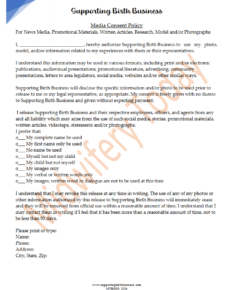
Photo by Artur Aldyrkhanov
My Journey as a Doula and Discovering Something More
Midwifery Today, Issue 146, Summer 2023.
Join Midwifery Today Online Membership
Why did I become a doula? What was the draw to birth work? I was nine years old when my mom told me she was pregnant. From the start I was enamored with the whole process. I was in awe of the female body and its ability to grow and deliver life. I was invited to stand witness at Christopher’s birth in 2003 when I was 10. What a gift! His birth, my mother’s labor, her hard work and power is something I’ll never forget. I saw standard hospital “care,” which left something to be desired (an understatement). My mother was the brilliant one.
I knew after that experience that I wanted to watch babies be born for the rest of my life. At 15, I became serious about studying homebirth midwifery and read Ina May Gaskin’s Spiritual Midwifery several times. In my senior year of high school, I took a one-year basic course in midwifery through the Massachusetts Midwives Alliance. The course offered a doula training at a reduced cost so I thought why not?
The doula organization is called toLabor. It was a three-day training with an instructor who is very passionate about her work. I left with a new goal of becoming a certified professional doula. The requirements were:
- Attend six births and write them out.
- Read a lot of birth books.
- Ask the women whose births I attended to write about their experience with me.
- Attend a childbirth education class.
- Take a very long open book exam.
I took two years to complete it all, but I became certified. I quickly learned that labor did not teach me how to be a businesswoman. How would I reach the community? How would I recruit clients? I didn’t know how to create a website. I needed instruction on how to create a contract. How would I determine fair compensation for my work?
I also learned that my organization limited me in ways that didn’t make sense: “This is who you can serve and this is who you cannot. This is how you should speak, educate, and act.” Those limits didn’t seem right to me. I’ll serve whomever I want under the circumstances I choose. I want to see women in all circumstances be informed and well-supported and I wasn’t going to let a certification limit me in fully supporting whomever I choose under any circumstance. That wasn’t the only issue I had with certified doula work, though.
So much coercive sabotage occurs within the hospital and with licensed professionals who work for the state. Many providers look for problems and expect a disaster to happen. Pregnancy is not viewed as a continuation of health, but rather a condition that needs to be highly managed. They fall under policy and regulations, unable to support individuals without the threat of losing their position. Routine trumps autonomy. The majority of hospital staff are accustomed to routine systematic action and have no idea how to practice true, informed consent.
Many of the nurses and obstetricians have never witnessed a natural, physiological, mother-led labor and birth. Labor is hard work and when women are pulled from their concentration in that vulnerable state that they can easily be talked into interventions, trusting that what’s being done to them is best for their baby and their own experience. Blind trust in doctors—seeing them as the ultimate authority figure in pregnancy and labor—leads to unnecessarily medicalized births. I have witnessed this abusive authoritative control at both hospital and midwife-attended births and I can no longer be present, even as an advocate. Even if by just standing in the room, one aids in abuse by being present.
After a couple years of the required annual recertification I dropped the certification and tried to discover where to go from there. I believe that ignorance is never bliss, so I keep an open mind, read, study, observe, and listen. I am constantly learning, but I’ve come to the conclusion that the following are the most important concepts for any birth worker to realize:
- Humans are mammals.
- Pregnancy is a state of health.
- Birth is a normal biological function.
- Full autonomy and responsibility belong to the woman giving birth.
- Women do not need to be managed by an authoritative person while in labor or giving birth.
- The female body was meant to give birth in power through instinct.
- The mother alone gets credit for delivering her baby.
- No one cares more about the baby than the mother.
- Intervention is risky. This includes cervical exams, inducing labor with any method, IVs, drugs of any kind, coached pushing, episiotomies, and interfering with immediate postpartum.
- Understanding and performing true informed consent is vital.
- There are many variations of “normal.”
- It’s important to be familiar with true emergencies.
- There are many myths and misconceptions around pregnancy and birth and it is our responsibility to use common sense, not blindly follow anyone.
- It’s not about us. It’s never about us. Our expectations, desires and personal energies need to be dropped.
- It’s also not about touching or holding babies, nor is that appropriate.
- It’s all about holding space, safeguarding, trusting, witnessing and supporting a woman while she works hard, moving with her body and baby.
- Our job is not to get a woman to relax, be quiet, or be a “good” patient.
- And lastly, these things are impossible within a hospital setting, but can totally be possible at home with proper support.





















